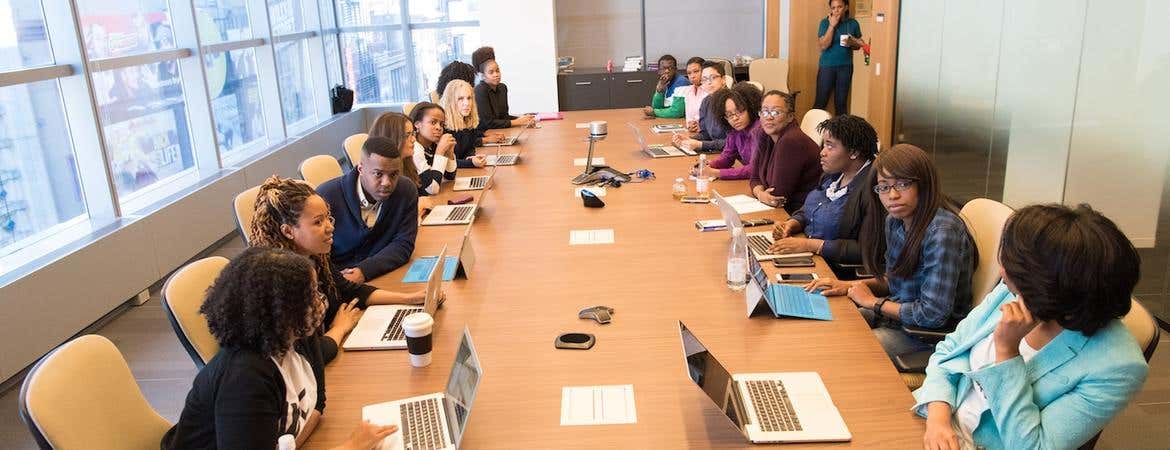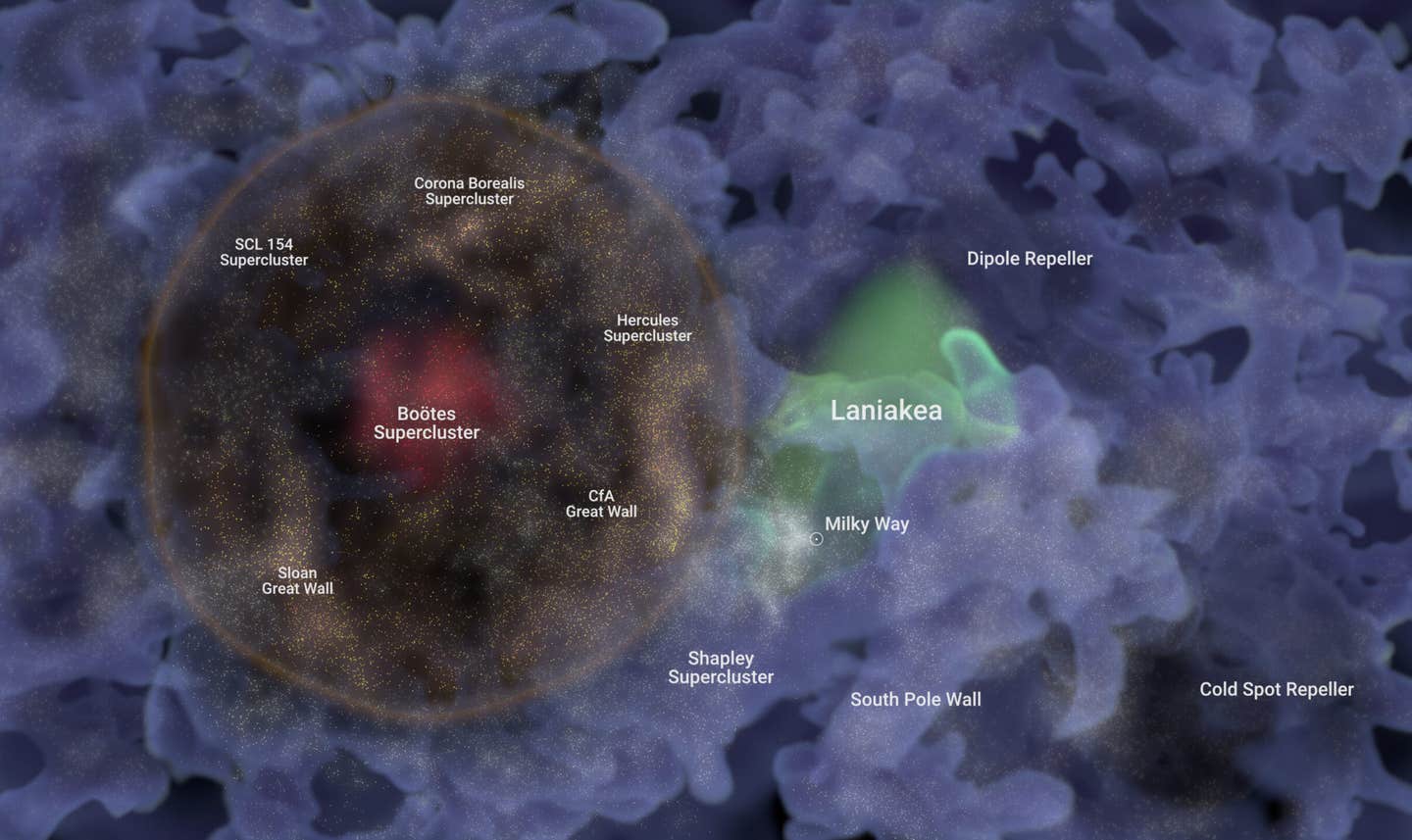Organizations that use ad hoc groups or committees to make decisions might do better
Trust the power of markets: People trust decisions made by groups, but information markets are more accurate

[Aug. 25, 2020: UC Riverside]
Trust the power of markets: People trust decisions made by groups, but information markets are more accurate
Organizations that use ad hoc groups or committees to make decisions might do better to crowdsource their decisions, says UC Riverside-led research.
The study found that people trust groups even though they are susceptible to manipulation and can make poor decisions. Information markets, in which people bet on potential outcomes, tend to make more accurate decisions, but people trust them less. Once people get used to using markets, however, they trust them more, making markets a useful decision-making tool for large organizations.
"Our key finding was that transparency and trust are why people prefer groups even though markets outperform them," said first author Boris Maciejovsky, an associate professor of management in UC Riverside's School of Business. "People are skeptical of algorithms. Markets will be used less until people get used to them."
The research raises additional questions for future research about the productivity of working from home during COVID-19 pandemic. The fact that people have less trust in computer-mediated markets than in face-to-face interactions might lead to a reduction in communication efficiency and thus potentially work performance while working remotely.
Information markets work like a game. People place bets on predicted outcomes in an online forum. Familiar types of prediction markets include those for the Oscars or elections. Markets, for example, often do better than exit polls at predicting the outcome of elections. Markets make accurate predictions by pooling and aggregating the diverse beliefs of many participants.
Groups and committees, by contrast, are typically smaller and therefore contain more homogenous knowledge and information. Groups are also easier to manipulate. Conflicts among members, misalignment of organizational and individual goals, and persuasive negotiation or voting can all lead to poor decisions.
Like these kind of stories? Get The Brighter Side of News' newsletter.
In large companies or organizations that use information markets, all employees are typically given the same amount of money and place odds-based bets on the potential outcomes of a situation or strategy in an online forum that everyone can see. Markets receive truthful information by asking participants to "put their money where their mouth is," and do not require alignment of organizational and personal goals. People who bet on the winning outcome get paid, giving an incentive to participate in the market. As in any betting situation, both correct and incorrect decisions have financial consequences.
Given their decision-making success, Maciejovsky and co-author David Budescu, a psychology professor at Fordham University, wondered why information markets are not used more widely by large organizations, which usually prefer groups and committees.
The first experiment had college students select a candidate for a managerial position in either a face-to-face group or an online market. Each category had the same information about the candidate. Group participants were given various roles and financial incentives, which were manipulated by the researchers in different ways. Market participants were manipulated with various financial incentives. Control groups and markets were not manipulated.
The results showed that groups outperform markets when the members share incentives and interests. However, markets outperform groups when conflicts of interest exist among members. Interestingly, people overlooked or failed to notice the detrimental effect of conflict within groups and put more trust on groups than markets.
Participants in the next experiment were either asked to watch a video of three people discussing job candidates or to watch market trading on a screen. Half the participants in the video cohort were told about conflicts of interest some of the candidates had. The market cohort was told that they could infer the merits of the candidates by observing market activity. Afterward, all participants were asked to evaluate their group or market on a number of attributes including transparency, benevolence, efficiency, familiarity, fairness, integrity, and predictability. The results confirmed the findings of the first study: People perceive groups to be more transparent, fair, and honest than markets.
To find out why people trust groups in spite of the demonstrably bad effects of intragroup conflicts, the third experiment recruited people who worked for a large forecasting project that sometimes uses information markets to make predictions and sometimes relies on teams or individual predictions. The forecasters from this project participated in a replication of the second study described above. The results showed a halo effect--everyone trusted the institution with which they were most familiar, which was committees. However, the more experience people had using information markets, the more they trusted them.
"It's hard at first to trust abstract mechanisms like markets," Maciejovsky said. "But our research shows that markets are reliable and less susceptible to bias. Large organizations could benefit from using information markets."
The research also hints at an unexpected potential outcome of the COVID-19 pandemic, where working from home has made in-person meetings impossible.
"Perhaps as people become more comfortable making business decisions in an environment of decreased interpersonal contact and increased reliance on technology decision markets will be seen as less threatening and find wider use in American organizations," Maciejovsky said.
The paper, "Too much trust in group decisions: uncovering hidden profiles by groups and markets," is published in Organization Science.
Joseph Shavit
Head Science News Writer | Communicating Innovation & Discovery
Based in Los Angeles, Joseph Shavit is an accomplished science journalist, head science news writer and co-founder at The Brighter Side of News, where he translates cutting-edge discoveries into compelling stories for a broad audience. With a strong background spanning science, business, product management, media leadership, and entrepreneurship, Joseph brings a unique perspective to science communication. His expertise allows him to uncover the intersection of technological advancements and market potential, shedding light on how groundbreaking research evolves into transformative products and industries.



